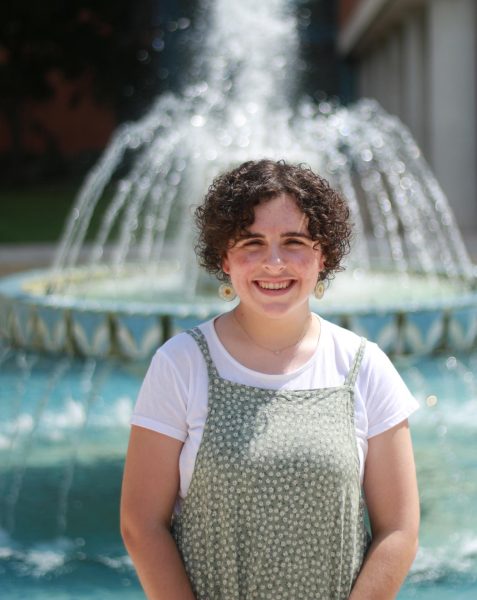I attended the Roots Commission conference last Thursday and Friday, and it was an incredible experience. Now for a little bit of a shameless plug, if you want to know more about the conference and what was discussed, you can check out my other article in this issue. And honestly, I’d bet many of you Trinity students who are reading this would need a little summary of the conference because there certainly weren’t a lot of us in the Stieren Theater on those days.
I was a bit disappointed not to see many students in the very conveniently located Ruth Taylor Theater building, especially because the event sounded really fascinating: a fireside chat with the woman who had gotten the ball rolling on universities studying their history with slavery followed the next day by professors and other researchers sharing their findings about Trinity’s roots in racism and colonialism. I hope that this is something that would interest a lot of students, and yet there I was, surrounded by only a handful of other students.
Except, I don’t have much room to judge because I probably wouldn’t have gone either if I didn’t end up having to cover the conference for the newspaper at the last minute. The event had been on my radar, sure, and I’m a history minor, making it precisely up my alley. But for some reason, I just couldn’t find it in myself to make plans to go.
My dilemma with the Roots Commission conference is a dilemma I’ve experienced time and time again. I hear about a campus event, I think it sounds really interesting, I tell myself I should probably go but then I decide, eh, I’d rather not. I’m always so busy that I end up not wanting to waste my little bit of free time on Trinity-sponsored lectures, plays, concerts, what have you, even if they sound like something I would like. Then there’s also the issue of me not wanting to go alone, but also not always wanting to go through the effort to beg friends to go with me.
Based on the attendance at the events I have actually gone to, I would say that other students go through the same dilemmas. Or maybe they just don’t want to go at all, I’m not a mind reader. The only times I tend to see a lot of student attendance at these sorts of events is when a lot of students are performing, bringing all of their friends into the seats. Lectures, in particular, don’t tend to see great student attendance when students aren’t forced to go for class. Anyone less famous than Venus Williams doesn’t tend to attract much attention.
The thing I’m starting to realize the closer I get to my graduation date, though, is that it’s not likely that many of us will ever have a chance like this again, to have all of these educational experiences accessible basically every week. The times that I have gone to lectures and conferences here at Trinity, I certainly haven’t regretted it. I’ve learned about things that I wouldn’t have learned about in my classes.
The Roots Commission, for example — there were so many historical lessons packed into those two days. I got to learn more about Ruth Simmons, former president of Smith College, Brown University and Prairie View A&M University, current advisor to Harvard University on historically Black universities. She was actually the person who hired Toni Morrison to work at Princeton University, fun fact. There was also a lovely acknowledgement of Carey Latimore, a Trinity history professor who was very involved in the Roots Commission project before he passed away in 2022, a professor that I had the privilege of taking a class with a few years ago.
I also gained a lot from the discussion about how Trinity memorializes its history because the speakers discussed how Trinity’s student publications, primarily the Trinitonian, replicate the narratives that the institution puts out. That’s something I could be more conscious of in my role at the Trinitonian, making sure we dig deeper than the primary narrative that university officials put forward.
In certain cases, I think that a lack of widespread promotion also contributes to the lack of attendance at lecture events. It’s hard to pick out specific events to go to when there are so many scheduled, none of which get full marketing attention. Ultimately, it’s worth putting in the effort to find the events that interest you because chances like this to expand your knowledge will be harder to find after undergrad.







